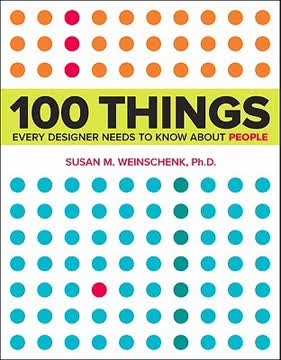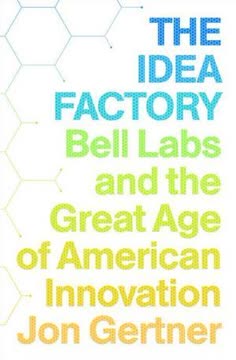つの重要なポイント
1. サイクル:情報産業の開放性と統制のパターン
歴史は情報技術の典型的な進行を示している:誰かの趣味から誰かの産業へ;即席の装置から洗練された生産の驚異へ;自由にアクセスできるチャンネルから単一の企業またはカルテルによって厳しく統制されるものへ—開放システムから閉鎖システムへ。
サイクルの説明。 著者が「サイクル」と名付けたこのパターンは、情報産業の歴史において繰り返される現象である。開放性と革新の時期から始まり、しばしばアマチュア愛好家や小規模な起業家によって主導される。技術が成熟し、その商業的な可能性が明らかになると、大企業が進出し、統制を強化し、閉鎖システムを作り上げる。
歴史を通じた例:
- 電話:ベルの発明からAT&Tの独占へ
- ラジオ:アマチュア放送局からネットワーク支配へ
- 映画:独立プロデューサーからスタジオシステムの統制へ
- インターネット:オープンな学術プロジェクトから企業の影響力の増大へ
サイクルは、産業が分散化された革新の時期から集中化された統制の段階へと移行する様子を示しており、しばしば創造性や消費者の選択肢を犠牲にする。
2. 破壊的創業者:既存システムに挑戦するアウトサイダー
私たちが記憶する発明者は、発明者としてではなく、技術的な現状を揺るがす「破壊的」産業の創業者として重要である。
破壊的創業者の特徴:
- 既存の産業に対するアウトサイダーであることが多い
- 問題に対する独自の視点を持つ
- 常識に挑戦し、リスクを取る意欲がある
破壊的創業者の例:
- アレクサンダー・グラハム・ベル(電話)
- エドウィン・アームストロング(FMラジオ)
- スティーブ・ウォズニアック(パーソナルコンピュータ)
これらの人物は新しい技術を発明するだけでなく、しばしば既存のプレイヤーからの抵抗に直面しながら、全く新しい産業を創り出す。彼らの成功は、技術革新と複雑なビジネスおよび規制環境を乗り越える能力の組み合わせに依存していることが多い。
3. 特許の力:革新の保護と独占の促進
外部の発明者の手にある特許は、大企業があなたを排除したり、あなたの会社や産業を支配したりするのを防ぐ一種の企業シールドとして機能する。
特許の二重性。 特許は革新者を保護するだけでなく、独占的な統制の道具としても機能する。特許は以下のことができる:
- 小規模な発明者を大きな競争相手から守る
- 既存の企業が支配を維持し、競争を抑制することを可能にする
歴史的な例:
- ベルの電話特許がAT&Tの創設を可能にした
- エジソンの映画特許がモーション・ピクチャー・パテント・カンパニー(エジソン・トラスト)を生み出した
特許は情報産業の形を決定する上で重要な役割を果たし、産業が開放的で競争的なままであるか、閉鎖的で独占的になるかを決定することが多い。特許の戦略的な使用は、破壊的な技術が成功するか、既存のプレイヤーによって抑制されるかの違いを生むことがある。
4. 政府の役割:規制、規制緩和、産業形成
FCCと議会は、ラジオを生み出した開放システムではなく、それを抑えようとする閉鎖システムを祝福することを見て取った。
情報産業に対する政府の影響:
- 規制の決定が産業構造を決定することがある
- 反トラスト行動が独占を解体するか、存続させるかを決定する
- 政策の選択はしばしば新参者よりも既存のプレイヤーを優先する
重要な歴史的介入:
- AT&Tの規制された独占の創設
- FCCのラジオおよびテレビ放送の形成における役割
- 1984年のAT&Tの解体
- 1996年の電気通信法
情報産業における政府の役割は複雑でしばしば矛盾している。競争と革新を促進するために行動することもあれば、強力な独占を支持することもある。このダイナミクスを理解することは、情報産業の未来を予測し、影響を与えるために重要である。
5. 垂直統合:メディア帝国の両刃の剣
産業の複数の層に強い利害関係を持つ企業は、固有の利益相反の立場に置かれる。二つの主人に仕えることはできず、情報の創造の目的はしばしばそれを伝達する目的と対立する。
垂直統合の利点:
- 規模と範囲の経済
- 生産と流通の全体的な統制
- 資産のクロスプロモーションと活用の能力
垂直統合の欠点:
- 革新と競争の抑制
- コンテンツの創造と流通の間の利益相反
- 検閲と情報流通の統制の可能性
歴史的な例:
- ハリウッドのスタジオシステムによる生産、流通、上映の統制
- AOLタイムワーナーの合併とその最終的な失敗
- アップルの統合されたハードウェア、ソフトウェア、およびコンテンツエコシステム
メディアおよび情報産業における垂直統合は、強力で効率的な企業を生み出すことができるが、革新、競争、表現の自由に対するリスクも伴う。この利点と欠点の間の緊張は、情報の風景を形作り続けている。
6. インターネット:根本的な変革か次のサイクルの犠牲者か?
インターネットは、その独自の開放設計により、1990年代の用語で言う「スーパーハイウェイ」として、他のすべての情報ネットワークがそれに収束する瞬間をもたらした。
インターネットの革命的側面:
- 分散型の開放アーキテクチャ
- 新しいサービスやコンテンツへの低い参入障壁
- グローバルな到達範囲と相互接続性
インターネットの開放性への挑戦:
- ネット中立性の議論
- 大手テクノロジー企業の統合の増加
- 政府の監視と検閲の努力
インターネットは、開放性と分散化の原則を体現し、以前の情報技術とは根本的に異なる可能性を持っている。しかし、企業および政府の力からの圧力が増大しており、より閉鎖的で統制されたシステムに移行する可能性がある。インターネットがその開放的な性格を維持するか、集中化と統制の歴史的パターンに屈するかは、依然として未解決の問題である。
7. 分離の原則:情報の自由のためのフレームワーク
私が提案するのは、規制アプローチではなく、情報経済に対する憲法的アプローチである。つまり、情報の統制から生じるすべての権力を制約し、分割することを目指す体制である。
分離の原則の主要な要素:
- コンテンツの創造と流通の分離
- 情報インフラストラクチャとサービスの分離
- 政府の役割は、民間の権力に対するチェックであり、援助ではない
実施戦略:
- 過度の垂直統合を防ぐための反トラスト法の執行
- 情報インフラストラクチャに対する共通キャリア規則
- 開放性と情報倫理の文化の育成
分離の原則は、情報産業における開放性と革新を維持するためのフレームワークを提供する。権力の過度の集中を防ぎ、情報経済の異なる層の間に明確な境界を維持することにより、このアプローチは開放システムと閉鎖システムの両方の利点を保持し、それぞれの欠点を軽減することを目指している。
最終更新日:
FAQ
What's The Master Switch about?
- Exploration of Information Empires: The Master Switch by Tim Wu examines the rise and fall of information industries, focusing on how new technologies often start as open systems but eventually become monopolized.
- The Cycle Concept: Wu introduces "The Cycle," describing the typical progression of information technologies from open to closed systems, highlighting historical patterns in telephony, radio, film, and the Internet.
- Historical Context: The book provides a historical narrative, detailing key figures like Theodore Vail of AT&T and Adolph Zukor of Paramount Pictures, and their roles in shaping the information landscape.
Why should I read The Master Switch?
- Understanding Modern Media: Reading this book helps readers understand the dynamics of modern media and the implications of monopolistic control over information.
- Lessons from History: Wu draws parallels between past information empires and current technologies, offering insights into how history may repeat itself with the Internet.
- Critical Thinking: The book encourages critical thinking about the future of information technologies and the importance of maintaining open systems for innovation and free expression.
What are the key takeaways of The Master Switch?
- Open to Closed Transition: Every major information technology has transitioned from an open, innovative phase to a closed, monopolistic one, often stifling creativity and diversity.
- Role of Monopolies: Wu argues that monopolies, while sometimes efficient, can lead to a lack of innovation and reduced public discourse, as seen with AT&T and Hollywood studios.
- Importance of Regulation: The author discusses the role of government regulation in shaping industries, suggesting that without oversight, monopolies can flourish at the expense of public interest.
What is "The Cycle" as defined in The Master Switch?
- Definition of The Cycle: Wu defines "The Cycle" as the historical pattern where new information technologies start as open systems, encouraging innovation, but eventually become monopolized and closed off.
- Historical Examples: The Cycle is illustrated through various technologies, including telephony, radio, and film, each of which began with open access but ended up dominated by a few powerful entities.
- Implications for the Internet: Wu warns that the Internet, despite its current openness, may also be subject to The Cycle, leading to potential monopolistic control in the future.
How does The Master Switch relate to the Internet?
- Current Context: Wu discusses the Internet as the latest information technology that began with open access and innovation but faces threats of monopolization from large corporations.
- Historical Parallels: The book draws parallels between the early days of the Internet and previous technologies, suggesting that the same patterns of control and closure may emerge.
- Call for Vigilance: Wu emphasizes the need for vigilance and advocacy for open systems to prevent the Internet from following the same path as earlier information empires.
What role does government play in the information industries according to The Master Switch?
- Regulatory Influence: Wu discusses how government regulation can either support or hinder the development of information industries, often favoring established monopolies over new entrants.
- Historical Examples: The book provides examples of how government actions, such as the Kingsbury Commitment with AT&T and the breakup of Hollywood studios, shaped the landscape of information industries.
- Need for Balance: Wu argues for a balanced approach to regulation that encourages competition and innovation while preventing monopolistic practices.
What is the Separations Principle mentioned in Master Switch?
- Definition of the Principle: The Separations Principle advocates for keeping different layers of the information economy—content creation, distribution, and access—distinct from one another.
- Historical Context: Wu argues that historical monopolies, like AT&T, demonstrate the dangers of vertical integration in information industries.
- Implementation: The principle suggests that regulatory bodies like the FCC should enforce rules that prevent monopolistic practices, ensuring a more equitable information landscape.
How does Tim Wu define the concept of net neutrality in Master Switch?
- Core Definition: Net neutrality is the principle that Internet service providers must treat all data on the Internet equally, without discriminating or charging differently by user, content, website, platform, or application.
- Historical Context: Wu connects net neutrality to the historical struggles for open communication channels, emphasizing its importance in preventing monopolistic control over information.
- Implications for the Future: The book warns that without net neutrality, the Internet could become a closed system dominated by a few powerful entities.
What are the best quotes from The Master Switch and what do they mean?
- “At stake is not the First Amendment or the right of free speech, but exclusive custody of the master switch.”: This quote underscores the central theme of the book, highlighting the importance of who controls information and communication technologies.
- “History shows a typical progression of information technologies: from somebody’s hobby to somebody’s industry.”: This reflects Wu's argument about the inevitable transition from open innovation to monopolistic control.
- “The brave new technologies of the twentieth century… eventually evolved into privately controlled industrial behemoths.”: This quote encapsulates the book's warning about the dangers of monopolization and the loss of public access to information.
How does The Master Switch address the concept of free speech?
- Connection to Information Control: Wu posits that free speech is closely tied to who controls information technologies, suggesting that monopolies can limit the diversity of voices and ideas.
- Censorship Mechanisms: The book explores how centralized control over media can lead to censorship, whether through formal regulations or informal pressures from powerful entities.
- Advocacy for Openness: Wu advocates for maintaining open systems in information industries to ensure a vibrant marketplace of ideas and protect free speech.
What are the historical examples used in Master Switch?
- AT&T and the Telephone Monopoly: Wu details the rise and fall of AT&T, illustrating how it became a monopoly and the subsequent breakup in the 1980s.
- The Film Industry: The book discusses the emergence of Hollywood and the establishment of the studio system, highlighting how vertical integration stifled competition and creativity.
- Cable Television: Wu explores the deregulation of cable television in the 1970s and 1980s, showing how it transformed the media landscape.
How does The Master Switch conclude regarding the future of information industries?
- Cyclical Nature: Wu concludes that the cyclical nature of information industries suggests that without intervention, monopolies will continue to emerge and stifle innovation.
- Call to Action: The author calls for active engagement from consumers, policymakers, and innovators to advocate for open systems and resist the encroachment of monopolistic control.
- Hope for Change: Despite the challenges, Wu expresses hope that history can inform future actions, allowing society to navigate the complexities of information technology and maintain a diverse and open media landscape.
レビュー
『マスター・スイッチ』は、歴史を通じた情報帝国の洞察に満ちた分析で主に好意的な評価を受けている。読者は、電気通信、ラジオ、テレビ、インターネットにおける独占の探求を高く評価している。本書の歴史的な詳細と規制問題の検討も称賛されている。一部の人々は、著者のグーグルに対する偏見や「サイクル」概念が無理があると批判している。多くの人々は、情報技術の進化とその社会への影響を理解するための必読書と考えているが、いくつかの部分がアメリカ中心的であるか、時代遅れであると感じる人もいる。
Similar Books











